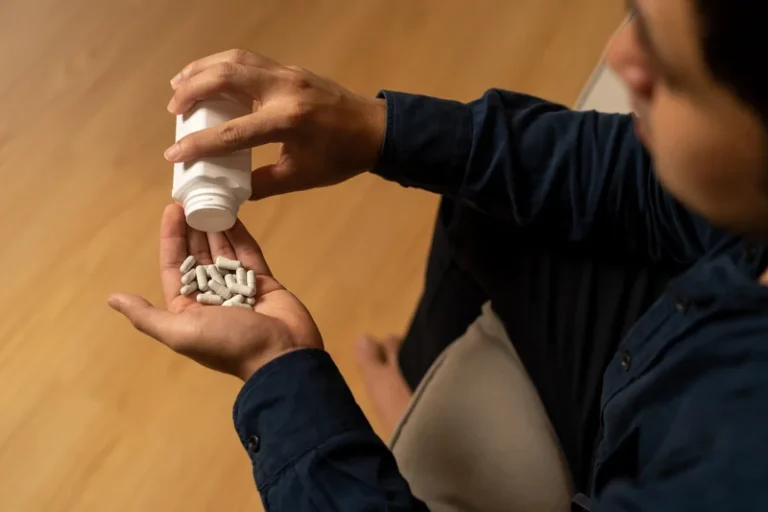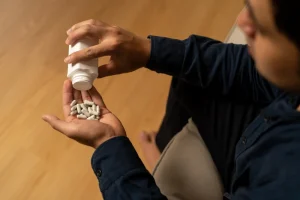
According to a report by the National Institute on Drug Abuse (NIDA) titled “The Effectiveness of Treatment” (1990), Alcoholics Anonymous (AA) and similar 12-step programs provide structured social support. However, retention rates vary, with approximately 40% of members disengaging within the first six months due to personal, environmental, or program-related factors. The roles of the sponsor in an alcoholics anonymous meeting are mentorship, guiding newer members through the 12-step program, and providing emotional support, accountability, and encouragement throughout recovery. Sponsorship is a one-on-one relationship where a more experienced AA member, who has maintained sobriety for a significant period, helps a newcomer navigate the challenges of early recovery. A chairperson or facilitator, a long-term AA member with significant experience in the program, leads AA meetings. The leader ensures the meeting follows AA’s structured format, including readings from The Big Book, discussions of the 12 steps, and time for personal sharing.

How to Find an A.A. Meeting
We lose the compulsion to drink which was once the dominant force in our lives. Spiritual engagement in AA is a significant predictor of long-term sobriety, with individuals who integrate a personalized spiritual approach reporting improved emotional resilience and increased commitment to recovery. Yes, Alcoholics Anonymous is effective for many individuals in achieving long-term sobriety, but its success varies based on engagement levels and individual needs. However, AA does not work for everyone, as some individuals struggle with its spiritual framework or require medical intervention. alcoholics anonymous The difference between open and closed meetings lies in who attends.
A Better Understanding of Alcoholism
He observed that in doing so, the groups encourage professionals to become more aware of and involved with problems such as alcoholism. Caplan emphasized that self-help proponents and professionals do not need to, nor should they, compete. People with the desire to stop drinking alcohol, of all ages, genders, and backgrounds, regardless of the severity of their alcohol use disorder (AUD) are eligible to join AA. The sponsor assists in understanding AA principles, working through personal struggles, and reinforcing commitment to sobriety. Each meeting typically consists of an introductory session by an AA speaker or team leader followed by a shared experience session where members open up about any issues or problems they are facing.
How Does Alcoholics Anonymous Help People Deal With Alcoholism?
AA is nonprofessional – it doesn’t have clinics, doctors, counsellors or psychologists. All members are themselves recovering from alcoholism. There is no central authority controlling how AA groups operate. It is up to the members of each group to decide what they do. However, the AA program of recovery has proved to be so successful that almost every group follows it in very similar ways. In 1974, Gerald Caplan described how such self-help groups (he called them support systems) evolve, drawing attention to and providing legitimacy to understanding and remediating such problems.
Trustee of the General Service Board
- An increasing number of clinical investigators and scholars have studied the therapeutic elements of AA.
- Hosted by therapist Amy Morin, LCSW, this episode of The Verywell Mind Podcast, featuring multi-platinum award-winning singer Bryan Abrams, shares his sobriety journey and how he found treatment that actually worked.
- Check with your health insurance provider, ask friends for referrals, or browse therapy directories like Psychology Today and GoodTherapy.
- The 12-step program encourages members to rely on a higher power, but AA does not define or require belief in any specific deity.
As a result, as is so often the case when professionals are unable to provide adequate solutions for such problems, support or self-help groups emerged (Caplan, 1974). Alcoholics Anonymous (AA) is an extraordinary example of these groups. However, it has spiritual elements that some interpret as religious. The 12-step program encourages members to rely on a higher power, but AA does not define or require belief in any specific deity. Instead, members are free to interpret the concept of a higher power on their own, whether that be God, nature, the universe, or the group’s collective strength. The success rate of Alcoholics Anonymous ranges from 50-70%.

How Many Times A Week Should You Go To AA Meetings?

Began in 1935 in Akron, Ohio, as the outcome of a meeting between Bill W., a New York stockbroker, and Dr. Bob S., an Akron surgeon. You can help people who are affected by alcoholism by making a donation to the Cleveland District Office. Information for Substance abuse people who may have a drinking problem.
Recovery Coaches & Counsellors
- Tough days might come, but with our supportive sober community, you’re never alone.
- There is no central authority controlling how AA groups operate.
- According to a report by the National Institute on Drug Abuse (NIDA) titled “Alcoholics Anonymous and Other 12-Step Programs for Alcohol Use Disorder” (2020), AA is approximately 50% effective in supporting long-term sobriety.
Individuals in AA understand that alcoholism is an illness, not just a sign of weakness or lack of willpower and that recovery involves physical, mental, social, and spiritual healing. In order for members to recover from the harmful effects of alcoholism and maintain sobriety, they must rely on each other for assistance and guidance. Alcoholics Anonymous works by providing a structured, peer-supported recovery program based on the 12-step model, regular meetings, and mentorship through sponsorship. The program helps individuals achieve and maintain sobriety through self-reflection, behavioral accountability, and social reinforcement.

A few months later, Cleveland’s membership had expanded to about 500. Early in 1939, the Fellowship published its basic textbook, Alcoholics Anonymous. The text, written by Bill and reviewed by many of the early members, explained A.A.’s philosophy and methods.
membership survey
Robert is our health care professional reviewer of this website. He has a nursing and business/technology degrees from The Johns Hopkins University. Oar Health offers science-backed, effective treatment for people ready to change their relationship with alcohol. Our licensed clinicians can prescribe Food and Drug Administration-approved naltrexone for AUD.
